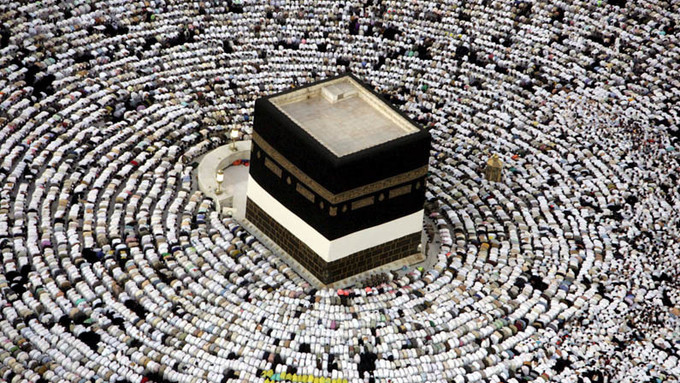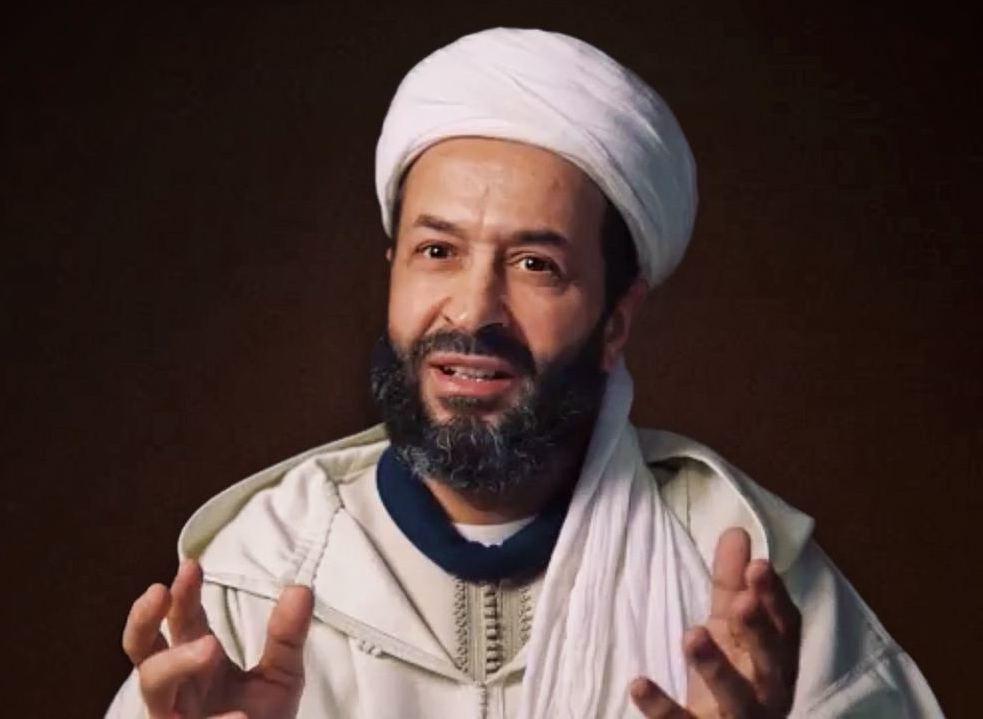Gleams of Inspiration from al-Mā'idah
[The following is a transcript of a lecture by Shaykh Mokhtar Maghraoui. It contains minor modifications from the spoken word for the purposes of readability.]
O Allah, we ask You for righteous deeds done for You alone, accepted by You alone. Ya Barr, Ya Arḥam ar-Rāḥimīn [O Kind Source of All Good, O Most Lovingly Merciful of those who are Merciful], Ameen.
Sūrah al-Mā’idah comprises of some aḥkām (practical rules and regulations) of our daily human lives — which should be, for our own happiness, in accordance with what Allah subḥānahu wa ta’āla instructs us, because He knows us better than we know ourselves.
Allah Reminds of Basic Aqīdah
In all of that, Allah subḥānahu wa ta’āla keeps on always reminding us of the subject matter of aqīdah: of tawḥīd of Allah ‘azza wa jall, of the pillars of faith, and of imān. And in Sūrah al-Mā’idah, when it comes to that it’s mostly a reminder about the People of the Book from those who were given the Book and revelation before the time of Rasulullah ﷺ. Allah subḥānahu wa ta’āla is reminding them of His gifts to them, reminding them of the good that has been in what Allah revealed to them, and reminding them that the message of Muhammad ﷺ is the culmination of all the messages of Allah subḥānahu wa ta’āla in continuation of the divine revelation.
The Future, in Past Tense
And He subḥānahu wa ta’āla also warns those who take other creatures, other human beings, and other things as gods besides Allah subḥānahu wa ta’āla. And sometimes the discourse is very severe, like the last part of Sūrah al-Mā’idah (5:116) when Allah ‘azza wa jall speaks about yawm al-qiyāmah [the Day of Reckoning] in the future. He speaks about it in the past tense, which is very powerful. He does this to imply and to signify that yawm al-qiyāmah is as true as something that has already passed.
وَ إِذْ قَالَ اللّهُ يَا عِيسَى ابْنَ مَرْيَمَ أَأَنتَ قُلتَ لِلنَّاسِ اتَّخِذُونِي وَأُمِّيَ إِلَـهَيْنِ مِن دُونِ اللّهِ قَالَ سُبْحَانَكَ مَا يَكُونُ لِي أَنْ أَقُولَ مَا لَيْسَ لِي بِحَقٍّ إِن كُنتُ قُلْتُهُ فَقَدْ عَلِمْتَهُ تَعْلَمُ مَا فِي نَفْسِي وَلاَ أَعْلَمُ مَا فِي نَفْسِكَ إِنَّكَ أَنتَ عَلاَّمُ الْغُيُوبِ
Allah said, “O ‘Isa, son of Maryam, did you say to people that you and your mother were gods?” Did you say, Allah said, etc. It speaks of the future in the past tense, to signify it has occurred already. This means it will occur as surely as we are sure of the past that has occurred.
‘Isa (عليه السلام) has answered, “Ya Rabbī, I will not say that which I have no right to say. If I have said it, you know it Ya Rabb. You know what’s in my nafs, I don’t know what’s in Yours. I said to them only that which you commanded me to say to them: that they worship none but God, none but Allah subḥānahu wa ta’āla. And I was a witness above them when I was living with them, but when You took me, You continued to be a Watcher over them, subhānaka rabbi [How perfect you are, O my Lord].”
And Allah subḥānahu wa ta’āla finishes Sūrah al-Mā’idah with that, because most of the sūrah, in addition to some aḥkām (some rules), was about the People of the Book. And therefore also about their response to the divine revelation that Allah subḥānahu wa ta’āla revealed through Muhammad.
Be Just to Those Unjust to You
And it is in this sūrah that Allah subḥānahu wa ta’āla reminds us of this very powerful concept of justice. This very powerful concept of justice: that we MUST do justice, even toward those have done injustice to us and those who have hated us:
يَا أَيُّهَا الَّذِينَ آمَنُواْ كُونُواْ قَوَّامِينَ لِلّهِ شُهَدَاء بِالْقِسْط
ِ وَلاَ يَجْرِمَنَّكُمْ شَنَآنُ قَوْمٍ عَلَى أَلاَّ تَعْدِلُواْ اعْدِلُواْ
هُوَ أَقْرَبُ لِلتَّقْوَى وَاتَّقُواْ اللّهَ إِنَّ اللّهَ خَبِيرٌ بِمَا تَعْمَلُونَ
“O you who have attained faith, be witnesses for Allah subḥānahu wa ta’āla, [and] establishers of justice. And let not the hatred and injustices of others to you cause you to swerve from being just. Be just to them; that is nearer to piety. And fear Allah, for Allah is All-Aware of what you do.” (5:8)
In other words, let not the richness of the rich or the poverty of the poor swerve you from being just; [how much wealth you have] does not matter, as He told us in Sūrah al-Nisā’ just before this sūrah. In this case, let not the injustices and the hatred of others to you cause you to respond to them in a way that is unjust, and therefore ungodly.
And may Allah send His peace and prayers and blessings upon our Master Muhammad and upon all his family and companions.
Faith & Spirituality Related Articles

5 Practical Steps To Get You Ready for Ramadan
As Ramadan is less than a month away, we might feel we often haven't done enough to prepare for it. Here are 5 things we can do right now during Shaban to make sure that we get the most out of Ramadan. The Prophet (Peace & Blessings upon Him & His Family) supplicated,” O Allah give us the blessings of Shaban and give us the treasure of Ramadan.”

Hajj at Home: Kindling the Spirit of Arafah
Even if we are not on Hajj this year, our situation is no different. We navigate through the complexities of our daily life, immersed in the never-ending responsibilities of work and family, inundated with the intrusions of technology and social media into every minute of our lives, moving from place to place and idea to idea.

